Following a year of growing pains, Germantown elementary school looks forward
Listen-
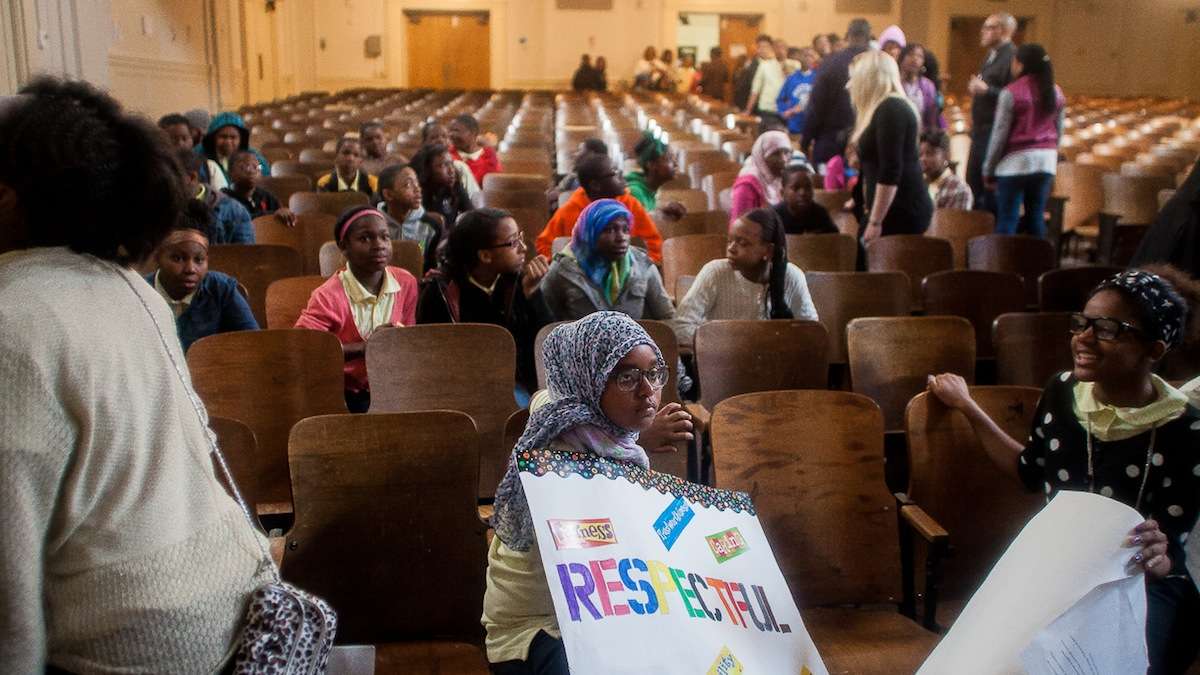
-
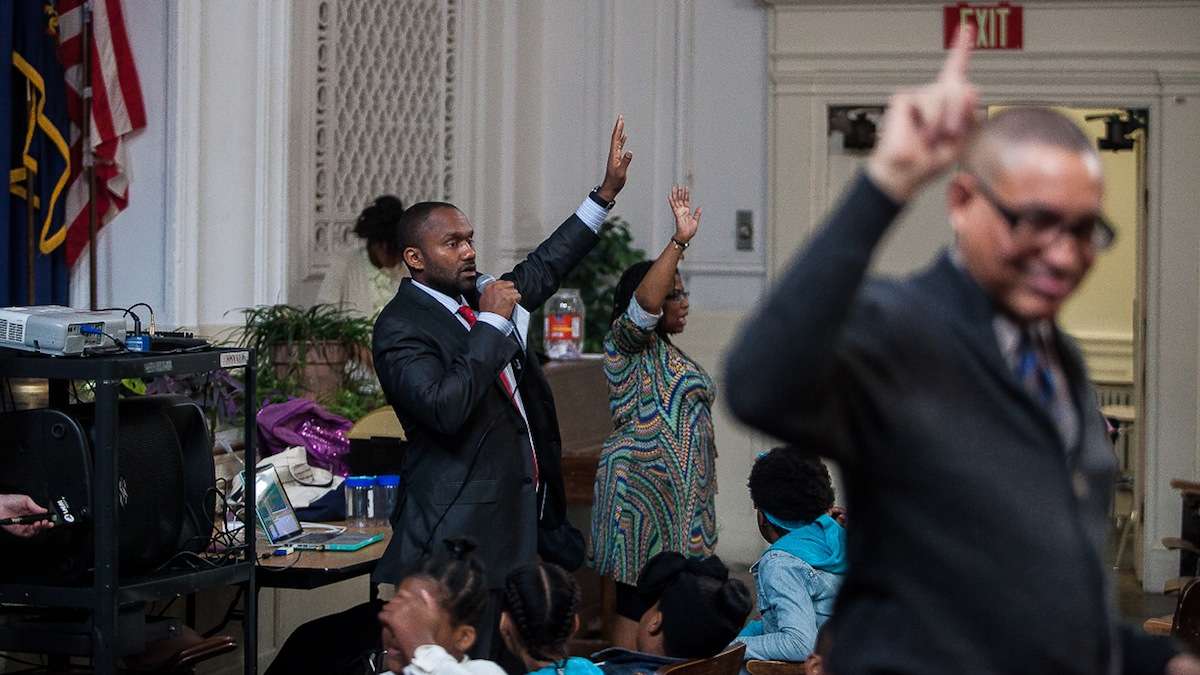
-
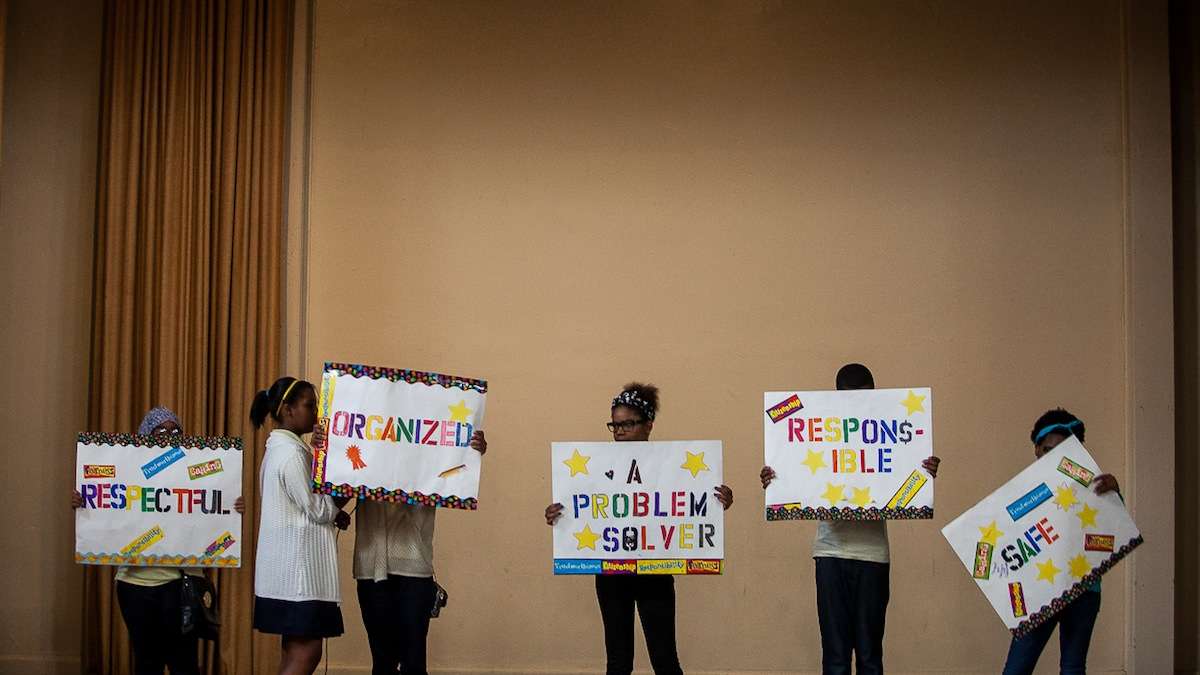
-

-
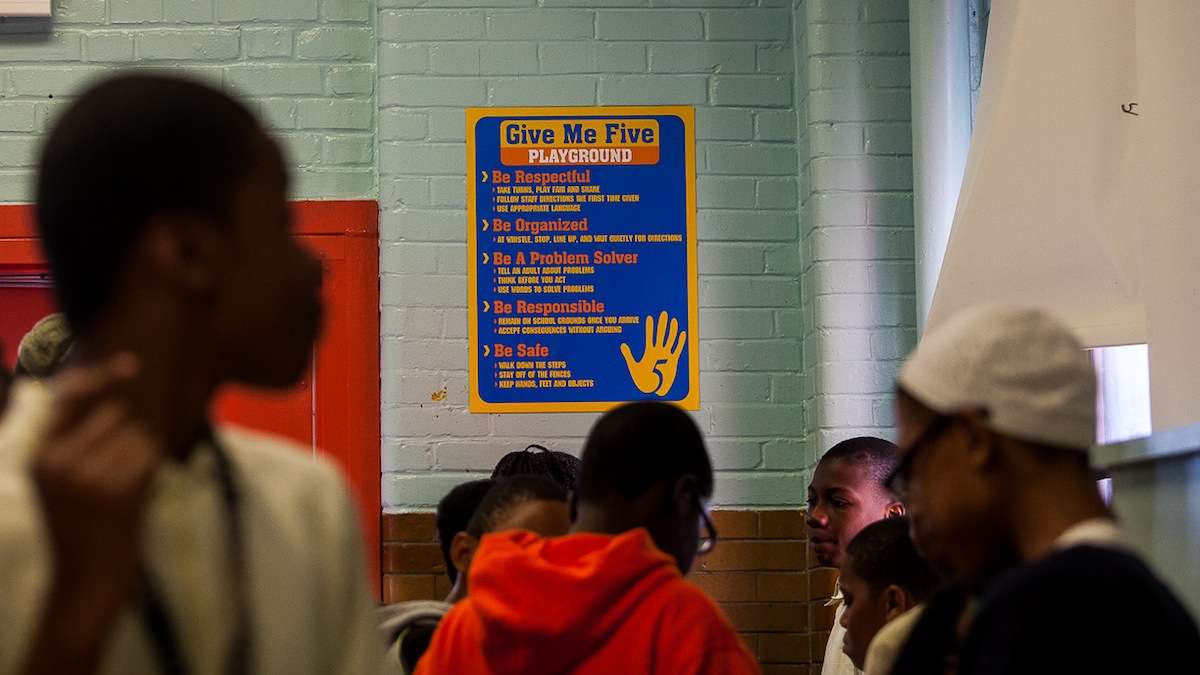
-
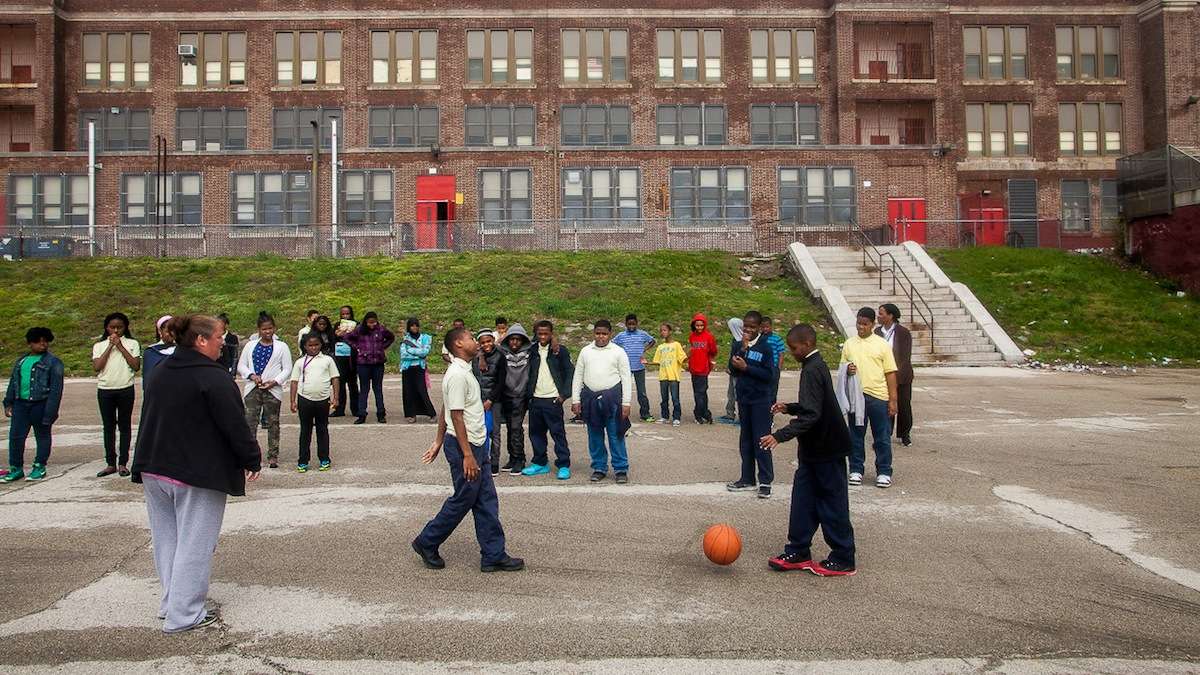
-

-
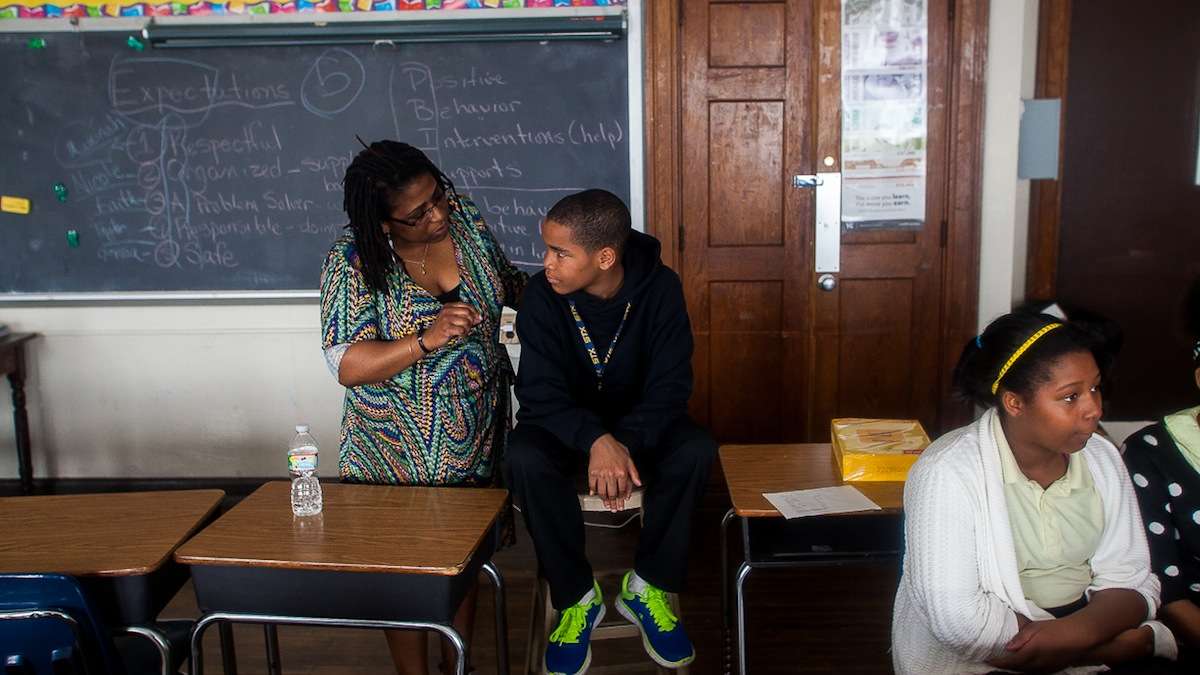
Roosevelt’s Cynthia Byron talks with sixth grader Zymeer Mcleod who helped put on the the Positive Behavior Intervention Supports (PBIS) presentation earlier in the day. (Brad Larrison/for NewsWorks)
On a recent Thursday morning, Roosevelt Elementary’s Principal Byron Ryan stepped out in front of a quarter-full auditorium and asked for silence.
“Please don’t make me pull you out,” he warned the nearly 200 students seated before him.
It’s just after 9 a.m. and Ryan is ready to kick off a special assembly showcasing a long-standing program aimed at improving school culture and, more specifically, student behavior.
PBIS initiative — short for Positive Behavioral Intervention and Supports — is already in place at a number of schools in the School District of Philadelphia.
The program is designed to promote positive behavior through positive reinforcement. On this day, the program is being officially introduced to Roosevelt’s fourth, fifth and sixth graders.
“This initiative is going to be used to do a couple of things,” Ryan said once the bunch settled down. “One, to help you enjoy school much more than you have been, and to have more fun and to give opportunities to display how well behaved you are.”
How it works
Under the program, students are expected to follow five basic tenants: Be respectful, organized, a problem solver, responsible and safe.
When they’re well behaved, they get a ticket. Those tickets can then be used to redeem prizes — an extra gym period, movie day or class trip, for example.
Roosevelt’s staff is hoping the program encourages the Germantown school’s almost entirely new student body to take pride in being good students both inside and outside of the classroom.
That’s been one of the most difficult tasks during a year that’s served up a heaping side order of growing pains.
A year of transition
Last school year, Roosevelt served roughly 320 seventh and eighth graders.
As part of the district’s facilities master plan, the school became a K- 8 elementary school.
The student body more than doubled after hundreds of students from the now-shuttered Robert Fulton Elementary enrolled.
“We’ve had our challenges trying to pick up seven grades and transition smoothly, but we’re working at it and trying our best to get through it,” said gym teacher Andrew Silverman.
Students and parents have acknowledged the same.
Sixth-grader Nichole Ellerbee came to Roosevelt after budget cuts turned nearby John B. Kelly into a K-5 school. She said school has been terrible at times.
“It’s not the type of experience you would want it to be,” she told NewsWorks. “It’s not like you would imagine, you would probably think it would have been a good school for you, but finding out from other people it’s different results then what you thought it would be.”
Creating positive momentum
Following a brief assembly outlining the program, students broke into pods and headed to spots around the school for some location-specific behavior lessons.
In the lunchroom, they’re told how to properly line up for food, throw away their trash and wipe off their tables.
In the schoolyard, they’re told to share balls and other playground equipment, and not to climb the fences that surround the concrete expanse.
Students also got refresher courses in how to act in the hallways and during trips to and from the bathroom.
“It’s really not rocket science. It’s what any parent or guardian would want for their child,” said Ryan.
As the year draws to a close, staffers are optimistic that the program can work and help store up positive momentum for next school year.
Sixth-grade teacher and program coordinator Cynthia Byron test-piloted the PBIS program before this month’s official rollout. She said she’s already seen the benefits.
“If you have a kid that’s doing something not right, and then you see them doing the right thing and you give them a ticket, it changes their entire day: ‘Wow I did something good. Now, maybe I’ll do something else good in 10 minutes, let me see if I can pull myself together,'” Byron shared.
Principal Ryan said student behavior has improved “slightly” since the fall, but even that shift has been dramatic for the school enviroment.
That’s why, despite this year’s struggles, he’s optimistic — and even a bit excited — about what Roosevelt can become going forward.
The way he sees it, he really has no choice.
“When you’re in the storm, if you don’t realize the sun is going to come out at some point, then you’ll always be defeated,” he said. “My choice is to continue to look for the sun and know that it’s going to shine, but if I focus on the storm, I have no choice but to be depressed about it.”
WHYY is your source for fact-based, in-depth journalism and information. As a nonprofit organization, we rely on financial support from readers like you. Please give today.





